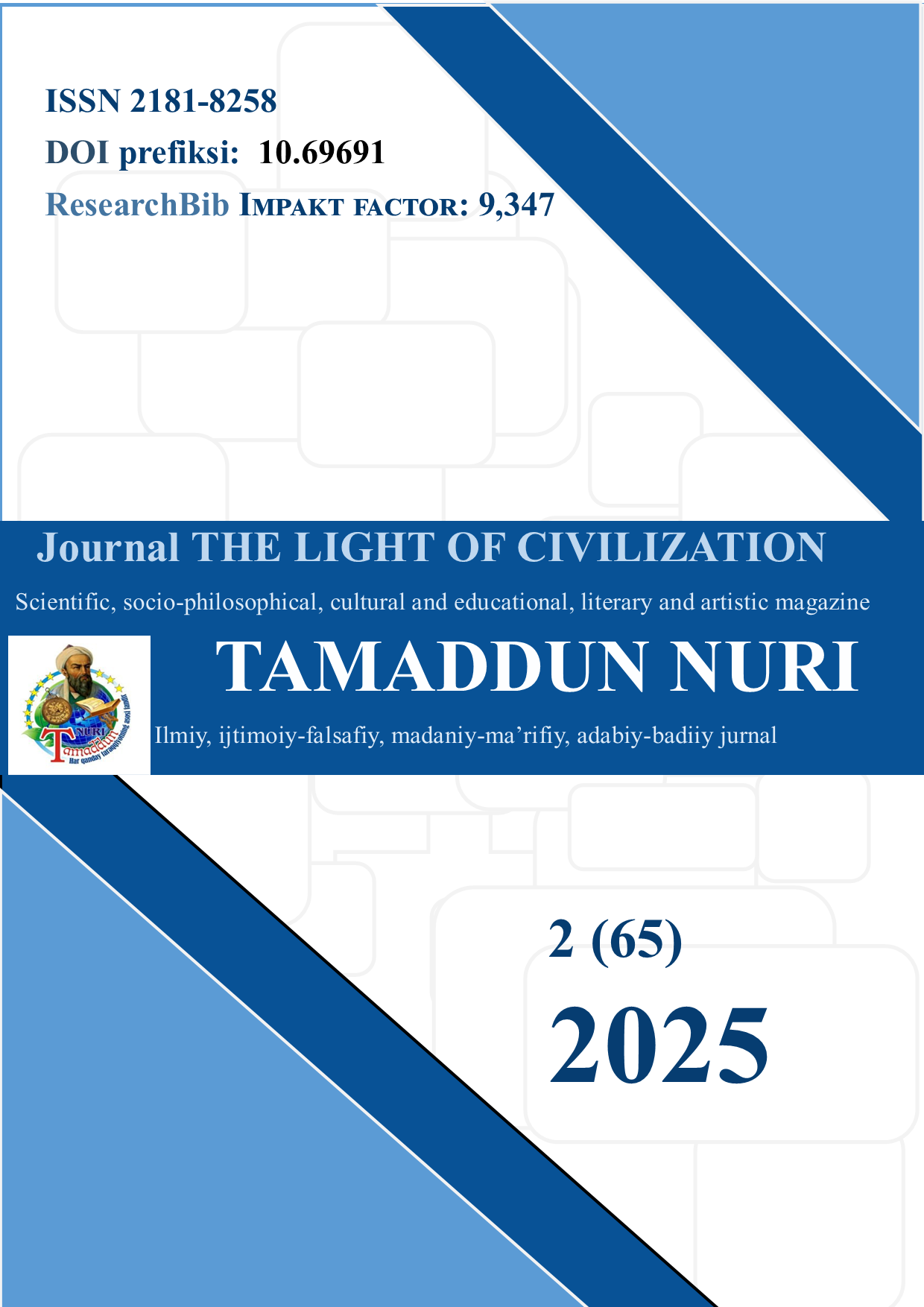A FEEDBACK ON THE WORD AND ITS MEANINGS IN GERMAN AND UZBEK LANGUAGES
DOI:
https://doi.org/10.69691/zgzdvb43Keywords:
word, sentence, thing, event, meaning, content, reference, seme, sememe, nominal transfer, negative meaning, positive meaning, figurative meaning, associative, association.Abstract
In this article, words and their semantic features are studied through a comparison of German and Uzbek. The characteristics of meaning, content, and reference of words, along with their differences, are revealed. The effects of meanings on human consciousness, whether intrinsic, composite, or associative, are also analyzed.
References
Ирисқулов M. Тилшуносликка кириш. –Тошкент: Ўқитувчи,1992.- Б.224.
Ўзбек тилининг изоҳли луғати, 5 –жилдли.-Тошкент, 2020.
Содиқов А., Абдуазизов А., Ирисқулов М. Тилшуносликка кириш.- Тошкент: Ўқитувчи, 1981.- Б.224.
DUDEN Deutsches Universalwörterbuch. –Mannheim: Brockhaus AG, 2007.- S. 2016.
DUDEN Die Grammatik. Dudenverlag: Mannheim-Leipzig-Wien-Zürich, 1984.-S.800.
Downloads
Published
Issue
Section
License
Copyright (c) 2025 Journal of Tamaddun Nuri

This work is licensed under a Creative Commons Attribution-NoDerivatives 4.0 International License.



